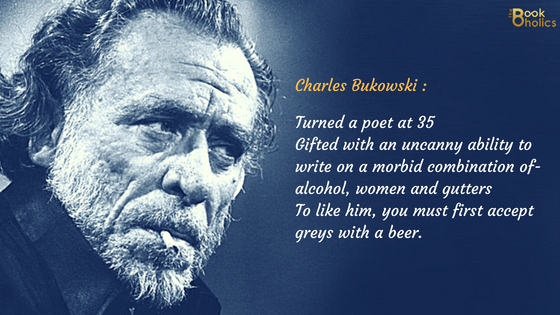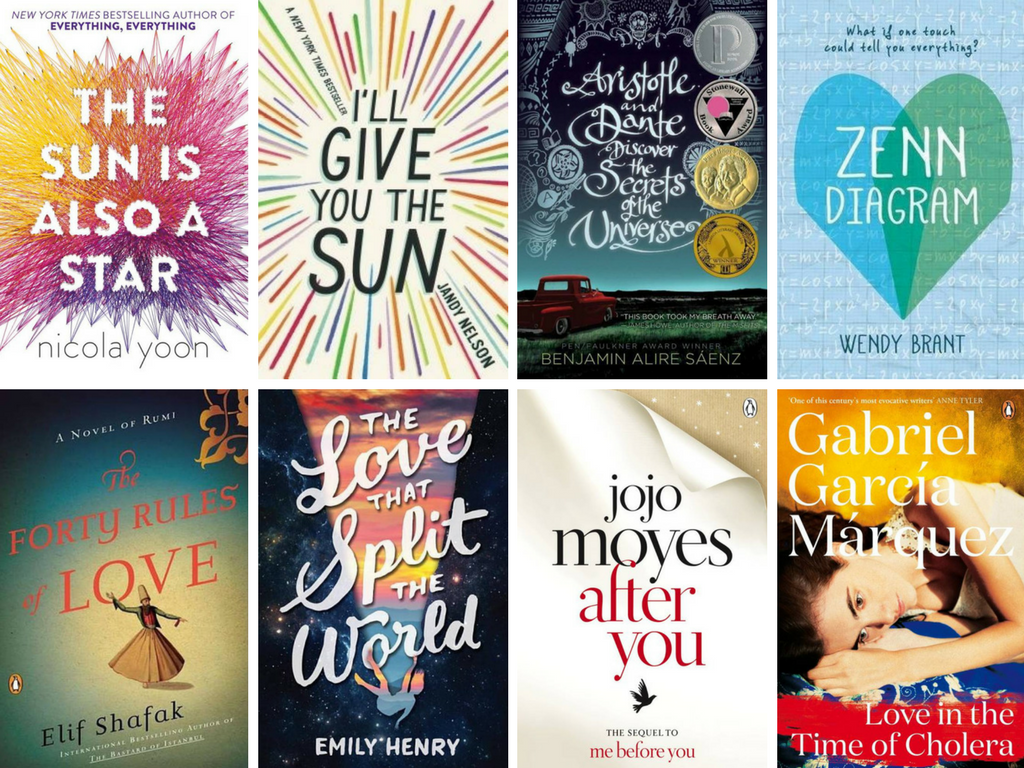“A gifted writer with an uncanny ability to write on a morbid combination of alcohol, women, and gutters.”

Born in Germany, Bukowski was brought to the United States at the age of two. His father was a strict disciplinarian and did not hesitate to beat Bukowski for the slightest offenses. His autobiographical novel ‘Ham on Rye’ details the abuse Bukowski was victim to. Not only was young Bukowski bullied by his peers, girls often rejected him owing to his bad complexion. When Bukowski was 13, one of his friends invited him to his father’s cellar and served him his first drink of alcohol. ‘It was magic,’ Bukowski would later write. ‘Why hadn’t someone told me?”
In 1939, Bukowski began attending Los Angeles City College but dropped out at the beginning of World War II to move to New York to become a writer. His world was defined by three things- sex, booze, and gambling. He wrote when he wasn’t doing one of them. The next few years he only effectively collected rejection slips. By 1946, Bukowski had decided to give up his writing aspirations, embarking on a ten-year journey with booze by his side. Ending up near death in Los Angeles, Bukowski started writing again. All the while he engaged himself in menial jobs like hanging posters in New York City subways. He gradually gained the reputation of a hard-living poet with an obsession with alcohol. He did not begin his professional writing career until the age of thirty-five and started by publishing in underground newspapers, especially in local papers such as Open City and the L.A. Free Press, which earned him his new-found popularity. He began receiving an audience, and his work became noteworthy.
“Writing is like going to bed with a beautiful woman, and afterward she gets up, goes to her purse and gives me a handful of money,” Bukowski once stated. His first book of poetry was published in 1959; he went on to publish more than forty-five books of poetry and prose, including Pulp (Black Sparrow, 1994), Screams from the Balcony: Selected Letters 1960-1970 (1993), and The Last Night of the Earth Poems (1992). “The main character in his poems and short stories, which are largely autobiographical, is usually a down-and-out writer [Henry Chinaski] who spends his time working at marginal jobs (and getting fired from them), getting drunk and making love with a succession of bimbos and floozies,” related Ciotti, a friend of Bukowski. Bukowski wrote what was a reality for some, and he did it well.
Though Bukowski died of leukemia in 1994, his future career has proven to be just as prolific. Due in part to the unique relationship he had with his publisher, John Martin, the editor of Black Sparrow Books, Bukowski’s massive output continues to make an appearance in book form every other year or so. Posthumous works, such as The People Look Like Flowers At Last: New Poems (2008), address subjects similar to those in his first collection.
“Without trying to make himself look good, much less heroic, Bukowski writes with a nothing-to-lose truthfulness which sets him apart from most other ‘autobiographical’ novelists and poets,” commented Stephen Kessler in the San Francisco Review of Books. Charles Bukowski’s life isn’t exactly a tale of endurance or inspiration. But what does set him apart, is his inclination to write even after having faced multiple rejections. It did earn him fame at the end, and Charles Bukowski became a wizard in the world of passive yet honest poetry. His way of writing and living was considered offensive by many but in his words- “Some people never go crazy. What truly horrible lives they must lead.”
Quotes by the same author:
“We are here to laugh at the odds and live our lives so that death will tremble to take us.”
“I’ve had so many knives stuck into me when they hand me a flower I can’t quite make what it is. It takes time.”
“Well,’ I said, ‘It’s simple, it’s either you get it down on paper, or you jump off a bridge. Writers are desperate people, and when they stop being desperate, they stop being writers.”
“There’s a bluebird in my heart that wants to get out, but I’m too tough for him, I say, stay in there, I’m not going to let anybody see you.” – taken from ‘Bluebird.’





















